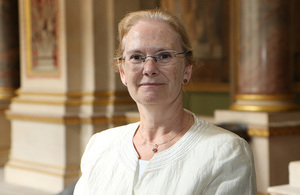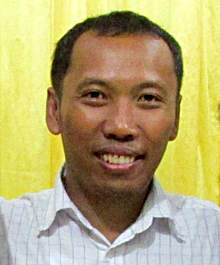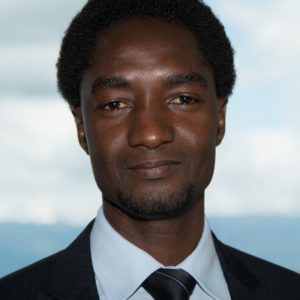Événement Conférence
Leveraging Glasgow’s Ambition in Geneva’s Multilateral Processes | Geneva Cryosphere Hub

This session was hosted as part of the activities of the Geneva Cryosphere Hub , an initiative of the Swiss the Federal Department of Foreign Affairs (FDFA) and the University of Geneva on the occasion of COP26. With activities in Glasgow and Geneva, the Hub aimed to showcase the latest science on the cryosphere and foster dialogue between scientists, policy-makers, international organizations and civil society to support climate ambition.
About the Geneva Cryosphere Hub
The Geneva Cryosphere Hub is the link between Switzerland and the pavilion which was dedicated to the cryosphere at the 26th Conference of the Parties (COP26) in Glasgow from 1-12 November 2021. Switzerland is one of the main partners of the pavilion, where scientific results were presented throughout COP26 to delegates and officials attending COP26.
About this Session
Glasgow had captured global attention, as delegates from around the world gathered for the UN Climate Conference – UNFCCC COP26. As the latest science points out, urgent and ambitious action is needed to safeguard our planet and the species that inhabit it – humans included – from the dire consequences of global warming. While current commitments remain below the needed levels to tackle this crisis, expectations for Glasgow were high.
Meanwhile, climate change is far from being a stand-alone issue. Rather, it is part of a complex planetary crisis, whose roots and impacts extend way beyond the greenhouse gas emissions present in our atmosphere. Climate change is deeply connected with biodiversity loss, human rights, economic prosperity, trade, health and many more issues which are at the heart of the multilateral processes in Geneva.
As a global hub for environmental governance and multilateralism on a wide variety of social, environmental and economic issues, Geneva is ideally positioned to support the climate ambition raised at COP26. This event explored the interlinkages between Glasgow and Geneva, by highlighting how the outcomes of COP26 would feed the global agenda in Geneva in the upcoming months.
This session was hosted as the closing event of the Geneva Cryosphere Hub.
Speakers
By order of intervention.

Anna SCOLOBIG
Senior Research Associate, Institute for Environmental Sciences, University of Geneva

H.E. Amb. Jane Caroline OWEN
Extraordinary Ambassador of the United Kingdom to Switzerland

Samuel K. Jr. LANWI
Deputy Permanent Representative, Permanent Mission of the Republic of the Marshall Islands to the United Nations Office and other international organizations in Geneva

Carolyn DEERE BIRKBECK
Director of the Forum on Trade, Environment & the SDGs (TESS) & Senior Researcher, Global Governance Centre, Graduate Institute

Sonia SENEVIRATNE
Department of Environmental Systems Science, ETH Zürich & IPCC Lead author

Budi TJAHJONO
Asia-Pacific Programme Coordinator, Franciscans International

Amb. Stefan ESTERMANN
Head, Prosperity and Sustainability Division Division, Swiss Federal Department of Foreign Affairs

Géraldine PFLIEGER
Associate Professor & Director, Institute of Environmental Science, University of Geneva
Summary
Launch
Anna SCOLBIG | Senior Research Associate, Institute for Environmental Sciences, University of Geneva
- Today, we will be discussing how the outcomes of UN Climate Change Conference – COP26 will feed the global agenda in Geneva and beyond. This event is co-organized with the Geneva Environment Network, in collaboration with various international organizations, Permanent missions, and research institutions. while negotiations in Glasgow are still ongoing to finalize an ambitious agenda to safeguard our planet.
- It is becoming clear that we have to stop thinking in silos and acknowledge the connection between climate change, human rights, economic prosperity, trade, health and biodiversity. And this is what brings together the partners that are joining us for this event.
- It is important of ensuring the integrity of all ecosystems, including the cryosphere, which has been the core topic of the Geneva Cryosphere Hub. Linked to the Cryosphere Pavilion in Glasgow, the hub showcased the work of researchers and practitioners from several universities and institutes, NGOs, international organization, and public authorities. The focus has been on cryosphere processes, climate change, adaptation, finance, loss and damage, climate scenarios, impacts, governance of polar region and Indigenous Peoples’ rights. In the past twelve days, the program has been designed, working together with over 40 public and private organizations. We have been welcoming 48 speakers often in duplex with Glasgow.
- Today, at our closure event, we are looking forward to hear from our speakers if and how ambition has been enhanced in Glasgow. How have expectations been met and how will COP26 outcomes feed the global agenda in Geneva?
Welcome & Introduction
Moderator | Bruno POZZI, Director Europe Office, UN Environment Programme
- Thanks to all panelists joining this event as the COP in Glasgow is coming to an end. We are coming to the end of two weeks of intensive linkages between Geneva and Glasgow. This is really important because what is decided and what is now negotiated in Glasgow will have an important impact on what we do in Geneva. All actors of the International Geneva are mobilized to deliver their part.
- Together we really make a difference and act on the real challenge of the 21st century. Climate change is a topic that mobilizes us, that must gather forces together. It is by the common action, the common agenda that we are building together, that we will deliver the ambition of getting the climate change under control.
Welcome Address | H.E. Amb. Jane Caroline OWEN, Extraordinary Ambassador of the United Kingdom to Switzerland
- First of all, I wanted to offer congratulations to the Swiss Ministry of Foreign and indeed the University of Geneva for all the efforts on this Cryosphere Hub and the Cryosphere Pavilion in Glasgow. Looking at what is happening with glaciers, this initiative gives us a very visible image of the dangers of climate change. They can serve as the ambassadors of the dangers of climate change, giving us a glimpse of the implications further down the line for water, security, food security, and for energy security in some ways as well.
- It was great to have Swiss President Parmelin last week, as well as Finance Minister Maurer, who was also doing a lot to push forward some of these key financial challenges that we face including through regulation, through the International Standard Sustainability Board (ISSB), which we’ve decided as a result of Glasgow to set up. At the moment, Federal Councilor Sommaruga is in Glasgow helping with the final negotiations.
- There’s been a lot of controversy very predictably over the last few weeks and months about what are we going to achieve in Glasgow. UK’s objective as the host of the summit has been to make sure that on the four key areas we’re looking at – adaptation, mitigation, collaboration and finance – we try to get ambitious outcomes.
- One take away from Glasgow has been this kind sense that we do now seem to be getting quite a good combination of fear on one hand and hope on the other hand. We do need to be very much more aware of the dangers of climate change. That has been a successful outcome actually, getting it much more into the broad public perception. Another key thing to come out of Glasgow, has been much more engagement of business and innovation and finance alongside the actions that governments intend to take.
- As I look forward, I do think the role of the private sector working together with government is going to be absolutely key. As we’re hosting this in Switzerland, just a couple of things to say about the UK and Switzerland working on this agenda. We work very closely together on the negotiations on policy on the regulation but we’re also well placed I think to do more on business innovations, startup companies. We want to work more on the financial agenda as well. Currently, the finance ministries of the UK and Switzerland are both negotiating to come to an arrangement where we can recognize the regulatory environment including for sustainable finance.
- Finally, science is absolutely crucial. We’ve both got really leading universities. We want to work with universities all around the world. The role of science not only in the Cryosphere but in working with governments and business to deliver action is going to be absolutely key.
Leveraging Glasgow’s ambition in Geneva’s multilateral processes
Climate Ambition Feeding Action for Nature and Biodiversity | Sonia PEÑA, Director, International Policy Centre, IUCN
- I will first go through a few key facts for us to bear in mind. Second, some considerations from Glasgow that we can bring and reflect upon as we continue negotiations towards the adoption of a post-2020 global biodiversity framework. That will have a stop over here in Geneva in January 2022, and then third, just conclude with some key takeaways.
- First, the facts. Although nature underpins the world economy, supporting around 55% of global GDP and human development depends on a healthy nature. Nature is declining at the fastest rate in human history at the moment. Basically one can say the reason for this is our economic systems fail to recognize the dependence on nature and the value of nature. The second fact is that climate and biodiversity emergencies are upon us today. We cannot deny it. These are two separate crisis deeply interlinked. On the one hand, climate change is the driver of the loss of biodiversity and at the same time, by depleting nature, the impacts of climate change are becoming increasingly more severe. Those are, extreme weather events, warming, floods, etc. And third, the science is clear about the urgency to act. The IPCC underscores that unless there are immediate, rapid and large scale reductions in greenhouse gas emissions, limiting the temperature to 1.5° or even 2° will be simply impossible. We saw IPBES, in 2019 ringing the alarm and saying 1 million species are threatened to extinction due to the loss of biodiversity or nature altogether.
- Let’s turn into the second part. From Glasgow what can we take to when we meet next year, to decide on the adoption of this post 2020 Global Biodiversity Framework, with a stop over in Geneva in January. Three observations.
- One is the disconnection between the highest political level mandatories and their messaging and the negotiators. There seems to be an inconsistency between the content of the high level interventions, the ministers, presidents, etc. that we saw in Glasgow at the very beginning of the conference, that we saw coming out of the ministers of environment in the case of the of the first part of the CBD COP15 that took place in October. What comes from them is a very green messaging. Whereas when you go to the practical realities of the negotiators, then, that is not the case. So, that’s when the rubber hits the road.
- The second observation is between, the consensus-based decision making and the ambition level So consensus meaning here that there is no objection to a decision being taken. So while one can be proud of the international environmental governance system with the consensus building, that system tends to produce outcomes that represent generally speaking the lowest common denominator. So that is far from the actual level of ambition that we need.
- And the third observation is that the nature agenda is sinking in and getting infused more widely in the climate, and everywhere else. But conservation alone won’t do the trick. Colleagues in Glasgow have observed that the nature agenda has been much more present at this COP. We heard nature-based solutions, being referenced more prominently in Glasgow.
- For the biodiversity community, it is important to take the message that it is clear that focusing only on conservation goal alone won’t help and won’t do the trick. Actually it will probably create a path to failure. Why? Because no matter how many protected areas you create, no matter how much you know of the percentage of the planet they cover or how many species you protect, that won’t do if the average temperatures increase due to failure to implement the Paris Agreement, and if national determined contributions are not up to the level that we need them to be. So in January when we meet in Geneva to further negotiate under the conventional biological diversity to agree on this post-2020 biodiversity framework, that need for an integrated agenda needs to be crystal clear and infused into the negotiations. No targets in the biodiversity sphere will be reached if they are left only to the biodiversity community to foresee them.
- I will conclude with a few takeaways. We have to move beyond the financial pledges to action, from action commitment to real and concrete action. We need urgently that concreteness and practicality in those high level messages. We hear a lot about enablers of implementation, capacity building, technology transfer, different forms of operation. However, I think that one of the main considerations, if not, the most important one, is that of financial resources. Just to give you a figure, current spending on conservation, fall short, roughly from 600 to 800 billion per year of what is required to meet the conservation goals or stop the loss of nature as embedded in the in the 2030 agenda. If financial resources are not secured, pledges are not maintained, to ensure we transfer our economies away from fossil fuels and invest in green investments . Let’s hold our breaths while we wait for what will come out of Glasgow later today or even tomorrow morning when the COP concludes.
Climate Action in Human Rights Processes | Samuel K. Jr. LANWI, Deputy Permanent Representative, Permanent Mission of the Republic of the Marshall Islands to the United Nations Office and other international organizations in Geneva
- We remain thankful that during the last session of the Human Rights Council (HRC48), which concluded last month, the interlinkages that we are discussing today between human rights and climate change, as well as the environment in general, were highlighted and recognized through the successful adoption of key resolutions. For background, in 2012, the creation of the UN special mandate on the enjoyment of a safe, clean, and healthy, sustainable environment, was already an important step towards the recognition of the connections between the environment we live in and the impact it has on human rights.
- But now we need a dedicated mandate given the specific environmental challenges, and the crucial needs around the climate crisis. In 2019, the Marshall Islands, at COP25 in Madrid, we called for the establishment of a mechanism in the UN system dedicated to climate change. We reiterated this at the Human Rights Council here in Geneva: at the 44th session in 2020, last year in June, with the support of 14 other small island developing states and low-lying countries, and again, recently, at the council in September 2021, where we saw the adoption of the resolution calling for the creation of the mandate of a special rapporteur on the promotion and protection of human rights in the context of climate change. A lot of this was largely achieved through the work of the core group that we had created, comprising the Bahamas, the EU, Fiji, Panama, Paraguay, Sudan, and ourselves. Utilizing that multilateralism space. Through the work of this special rapporteur, the international community’s understanding of the climate challenge poses to our human rights will improve, by studying and identifying how the adverse effects of climate change affect the full enjoyment, effective enjoyment of those human rights. This new rapporteur will provide better understanding and support for human rights based climate action as far as we are concerned.
- He or she will help coordinate efforts at all levels to preserve life in a livable planet. By coordinating consistent coverage of these impacts. Specifically, the focus will be on the adverse impacts of climate change including sudden and slow onset disasters. As such, the special rapporteur will be able to identify existing challenges, including what was just, mentioned, financial challenges, to promote and protect human rights while addressing the issue of global warming. And at the same time, also facilitating and contributing to the exchange of technical assistance as was also mentioned, capacity building initiatives, international cooperation, among all the support of national efforts. The main task of this mechanism is the awareness raising to highlight the extent to which human rights are affected by climate change.
- What’s happening on the ground? As you mentioned, back home, in the Marshall Islands, it’s beyond reality for us. And as the High Commissioner for Human Rights has qualified climate change being the greatest challenges of our time, especially to human rights, it becomes undeniable that over the years we continued to have a number of enormous devastating impacts on the enjoyment of our rights. As we see the devastating impact, climate change has on our villages, communities, and on our entire nation. In our response to these phenomenon advocating for the protection and advancement of human rights, here at the human rights council, and elsewhere is fundamental.
- Many more like-minded resolutions should follow as well as national policies and efforts to curb emissions in order to save our planets from the reversible changes which are already occurring. The world is more than aware. In Glasgow at the moment, while we’re here discussing these issues, parties are in the last hours of negotiations around important issues under the Paris Agreement, such as market and non-market-based mechanisms, finance, loss and damage, and it is our hope that these outcomes will be informed by ambition and human rights. Whatever the outcomes in Glasgow will be, the mandate holder, the special rapporteur will have an important role to play. That is because if human rights are effectively reflected in the Glasgow outcome, it will provide the necessary entry points to engage and if the outcome fails to deliver on human rights, the SR’s role, will be as important as ever.
- Climate change has clearly become increasingly into priority in many of Geneva’s multilateral organizations. As we have seen, pledges being made in Glasgow will directly affect the work done in the diplomatic circles, across the UN, NGOs, civil society organizations, and other bodies in Geneva.
- The new special rapporteur on human rights and climate change will break the silos that we have been talking about among institutions, and contribute to tackling climate change in a way that is more consistent and rooted in human rights.
- Whatever comes out of Glasgow in the next 24 hours, we will continue to foster for the collaboration among stakeholders in the years to come. I thank you all for your attention.
Addressing Climate Change through Trade Cooperation | Carolyn DEERE BIRKBECK, Director of the Forum on Trade, Environment & the SDGs (TESS) & Senior Researcher, Global Governance Centre, Graduate Institute
- Trade is very relevant to the climate agenda. Trade and trade patterns have a range of climate impacts. And we also know that climate has impacts on trade and on supply chains. Especially for those countries already feeling the impacts of the climate crisis, this affects their production. It also affects their trade and their trade infrastructure. We also know that countries are using trade policies to help them advance their climate agendas. We need to also ensure that trade policies don’t get in the way of ambitious climate actions. We have this set of issues on the table.
- Trade was not on the official COP26 agenda, But a number of trade and trade related issues that have arisen at COP26 are very relevant to the multilateral work here in Geneva. Indeed if we’re going to achieve the rapid massive okay transformation required to meet the Paris goals especially the 1.5° target. We would need to have trade as part of the picture.
- So the question is what can we do here in Geneva to harness multilateral cooperation on trade and development to to support climate action? There were two announcements at COP6 on trade.
- One was over 100 countries, including major producer in consumer countries such as Brazil, China, the US, and the EU, signed in Glasgow the leaders declaration on forest and land use, in which they committed to halt or reverse forest loss and land degradation. And part of that included an explicit pledge to new financing to protect forest ecosystems. And also a promise to promote trade and development policies that don’t drive deforestation and land degradation.
- And also a COP26, 28 different countries published a joint roadmap for cooperation on trade in forests and agricultural commodities. This was part of the UK led forest agricultural and commodity trade dialogue which was a key UK initiative related to COP26.
- One thing that came out of COP 26 is this emphasis on forest and forest supply chains. But there’ll be many questions in the trade context about how trade policy can support that. How we can ensure these kinds of pledges are actually implement and do we ensure accountability? And these were also linked to WTO discussions on issues such as sustainable agriculture and sustainable supply chains. We also have a potential outcome in the Paris Agreement.
- There’s language at least this morning on phasing out unabated coal and inefficient fossil fuel subsidies.
- We have the launch of the Beyond Oil and Gas Alliance (BOGA) Coalition, which is trying to have countries pledge to end production of fossil fuels.
- More broadly COP26 underline three key priorities to which the multilateral trade corporation system can contribute.
- One is around rapid decarbonisation to reach the 1.5° goal and we will have to look for ways that trade related policies can support the achievement of that goal. Part of that’s ensuring that countries have access to the most cutting-edge technologies, goods and services that can help them decarbonize whether that’s around energy efficiencies or renewable energy technologies and so on and services related to those. We also need to ensure that the push for decarbonization doesn’t marginalize developing countries. They have a strong interest obviously in being competitive in this green global economy. And so will need to think hard about what kind of trade related finance, aid for trade, access to technology and so on that will be necessary for them to compete effectively.
- A second thing is around the emphasis of COP26 on climate finance and there’s a really critical issue of making sure that developing countries have access to climate finance that will help them also be competitive in terms of trade in this greener decarbon global economy and that will link also to trade finance.
- The third area is this emphasis at COP26 on adaptation as being central to the climate agenda. There’s also an important set of trade issues around adaptation. For many countries it’s not just that they need access to goods and services for mitigation but also to help them in their efforts to adapt to climate change. And many of them suffer terribly because of the trade impacts of climate already. So this adaptation issue is central to them.
- Looking forward at WTO 12th Ministerial Conference (MC-12), we have a great opportunity for ministers to affirm the importance of climate action. Hopefully they will do that in a ministerial outcome document, and commit to cooperating in ways that are consistent with WTO rules but really drive forward a climate friendly trade. They can emphasize the role of the WTO’s committee on trade and environment in that respect. And Dr. Ngozi, the director general, has highlighted the importance of the WTO being engaged in this process and working out how it can help. We have 56 WTO members who are committed to having a ministerial statement on environmental sustainability and trade. Hopefully, many more members will sign up before MC-12, but this is really a landmark opportunity to catalyze dialogue, information exchange and focus on problem solving at the WTO on how that the trading system can better support climate action. And we also have 38 WTO members at minimum who will issue a ministerial statement on fossil fuel subsidy reform at MC12, and looking for to advance discussion on how they can achieve ambitious and effective disciplines on inefficient fossil fuel subsidies at the WTO focusing on transparency and reporting of fuel subsidies.
- It’s not only the WTO in the trade scene in Geneva . It’s really important that UNCTAD has a critical role to play and at their recent conference their Bridgetown Covenant highlighted the importance of environmental crisis. As a key trade and development issue for developing countries and the need for there to be a focus on on how to support the competitiveness of developing countries in a greener economy. Particularly those that are most vulnerable. And also to build of their trade. The ITC is doing fantastic work to help countries, developing countries be green to compete, recognizing that there will be this push to greater sustainability and helping to equip developing country MSMEs in particular to contribute to climate action and to be able to to compete and adapt also to climate impacts. And then of course we have UNEP which has a great role to play in bringing environment and climate ministries into this trade discussion. The key challenges will be to make sure that we have a just transition as we’re trying to move the trading system to greater sustainability and climate action. How to do so in ways that are that are fair and bring the poorest and vulnerable communities along the way to helping that.
Climate Action Supporting Green Recovery from the COVID Pandemic | Moustapha Kamal GUEYE, Global Coordinator, Green Jobs Programme, International Labour Organization (ILO)
- You rightly pointed out the transformation to low carbon and climate resilient economies will have drastic implications in our economic systems and in labor markets. This is very important because we know that jobs decent work depends with significant extent on healthy ecosystems and a stable environment. We find that no less than 1. 2 billion jobs depend on well functioning ecosystems. Now what we know is when it comes to the climate challenge inaction is not an option for the word of work. When we just measured the impact of a continued warming leading to heat stress on labour productivity, occupational safety and health, we find that on average, the word would lose about two percent of working time by 2030. With that, it is almost 80 million full time jobs that might be lost.
- Now, the other side is the positive narrative. We find that countries going ahead to implement the objectives of the Paris Agreement in the energy sector only with energy efficient, renewables and electric vehicles can deliver some 24 million additional jobs by 2030. So we are on a positive narrative. But we know there are going to be displacements of employment. There will be loss of income and some unavoidable damage. And this is why disagreement on climate change recognizes the imperatives of a just position and a creation of decent work as being essential aspects of climate action. And this is also why at the ILO in 2015 our tripartite constituents adopted a set of guidelines for a job transition towards environmentally sustainable economy and societies for all. So that provides a framework looking at a range of labour market policies that can go hand in hand with climate poverty. So we marry the decent work agenda with the environmental sustainability agenda.
- As we are now in an economic crisis with the COVID pandemic still persisting, we found that if countries were to invest in a green recovery to what we’ve done with our partners in the partnership for action on the green economy with UNEP, UNDP, UNITAR, and UNIDO that this of some 20 million jobs to be created in a green scenario. Having just returned from Glasgow where I was following the discussions on response measures, I wanted to say that one of the very positive outcomes of the COP is the Just Transition Declaration that the UK COP presidency launched on 4 November. I want to congratulate Ambassador Owen and the COP presidency because that is a very important move and it has rabid a number of countries but also multilateral and regional development banks and which is critical because of the need for financing for a just transition.
- Now, if you look at the negotiations as it stands, we see that there has been quite useful for us in the context of the discussions on the under the improved forum on the impact of the implementation of response measures which is the venue of the COP dealing with decent work just transition and economic diversification, and that’s very encouraging. However, we find that there is a little disconnect between the Paris language on just transition and decent work with the other areas of negotiation. When it comes to adaptation to climate change, when it comes to Article Six, when it comes to loss and damage, there seems to be a disconnect and as we speak, my team is still on the ground trying to advance language on decent work and just transition but it has been proven difficult. There is some work we need to do with the negotiators and countries to make the point that the Paris agreement does not confine decent work and just transition to response measures. It has to be applied across the implementation of the agreement including in in article six.
- Countries have been putting forward their NDCs and raising the ambition and the good news is that around forty-nine countries have at least recognized decent work and just transition at risk as important in their climate action. So we very much look forward to working with those countries to address their action.
- To end, the ILO governing body considering various options for the ILO to provide further guidance on just transition including a possible normative action in this area, which would be critical and timely. This connects us back with the agenda in Geneva which we are following very closely and we hope that with the further guidance coming from the ILO tripartite constituents, we would be able to bring a much significant contribution to the climate agenda delivering decent work and ensuring that there is a just transition for all.
Supporting Science-based Decision-Making through Climate Science | Sonia SENEVIRATNE, Dep. of Environmental Systems Science, ETH Zürich & IPCC Lead author
- It’s a great pleasure to speak today about how we can support science based decision making through climate science. I would say it’s still too early to take stock of the outcome of COP26 for climate mitigation. But we should say that climate scientists are extremely concerned. As you have said, we clearly have a climate crisis we know that limiting global warming to 1.5° would avoid numerous impacts also including irreversible impacts but at the moment we are not on course to limit global warming to 1.5°. I would say promises if not accompanied by action will not help us. It’s of course good to have long-term ambitions for instance for 2050, but it’s also essential to have decreases in emissions in the coming years. So in the coming four to five year because if you are looking at the remaining CO2 budgets, basically we have almost nothing left if you want really to achieve this aim.
- An open letter signed by more than 200 climate scientists including several scientists who were involved in the IPCC process, was released yesterday. For instance, Susan Solomon, Thomas Tucker, involved in several cycles of IPCC and this letter emphasize game that we have a climate and measures is we need to act and that climate science needs to be taken as a basis for decision making. I’m just going to cite a few points from this letter.
- First you’d start by saying that we climate scientists stress that immediate, strong, rapid, sustain and large scale actions are necessary. To hold global warming to well below 2° and to pursue a fault to limited to 1. 5° and thereby to limit future risk and needs for adaptation over the next decades to century.
- The letter also mentions the remaining CO2 budgets, which are compatible with the stabilization of global warming at 1.5°. Mentioning that they are rapidly shrinking and that we for this reason really need to have a very immediate reduction of emissions. Remaining budgets correspond at the current level of emissions to about 6 to 12 years of emission. They would be exhausted in about two 2027 to 2033. It shows that we don’t have a lot of time to take really strong decision. We need reduction of emissions now.
- From the statements that have come out from the corporate, as mentioned, we don’t know yet, what will be the final decisions. If we want to you know be able to achieve this aim of limiting global warming to 1. 5° and have an incredible basically promises and engagement in this direction
- The first point would be to have a yearly stock stick and update of the nationally determined contributions because as mentioned we need to reduce emissions every year now. It’s we have a having a five year cycle would be too short. If you are serious about the goal of limiting global warming to 1. 5° we need this review with very quick updates again yearly time scale.
- Another point that is come out into news was also weather for seafoods would be mentioned its happy us that we need to have an explicit mention of the need to phase out fossil fuels. Fossil fuels is the main source of CO2 emissions. There is no question about this. A net zero CO2 world can only be a world in which no more fossil fuels are being used. And that’s why we need to have this aim being stated in the decision making if we want to be consistent with the goal of limiting global warming very quickly to 1.5°.
- If we want to avoid numerous impacts, it will be important to set as 1. 5° with no unlimited overshoots and not 1. 5° by 2100. For instance, the 1. 5° report from IPCC clearly allied to the scenarios with only limited overshoots or no overshoot at most 0. 1° over the shoot. So, 1. 6° has been consistent with this aim. The main point for this is for instance associated to impact on biodiversity with higher levels of global warming. We know that we have more species extinction and some of these impacts obviously are irreversible. If we go for instance to 2° and if pieces being becoming extinct, we cannot go back and it doesn’t help us if we go back to 1. 5° after something. Again, it’s obvious that science should be essential part of decision making.
- There is also a mechanism that could be put in place for instance because IPCC cycles are too slow. Typically they take about seven to eight years. We need a cycle that is quicker where we really have input from science very often. Basically in parallel to the organization of the COP.
- There will be two more reports from the IPCC AR6 cycle that will be published next year, and also the synthesis report but I don’t think we should expect any change in message. Maybe if anything even a clearer sign of the emergency. Signs are showing that basically climate change is happening now is having substantial impacts in those already did into major major consequences.
Civil Society’s Expectations Beyond COP26 | Budi TJAHJONO, Asia-Pacific Programme Coordinator, Franciscans International
- Allow me to quote the statement of Michelle Bachelet, the United Nations High Commissioner for Human Rights, who delivered a message in the margins of COP26, highlighting that “Pollution, climate change and the biodiversity loss are the greatest threat to human rights of our era.”
- In the last few years, at Franciscans International, we’ve been in contact with our network, who’ve been directly affected by climate change. In the Solomon Islands, they are experiencing the raising of sea level which goes the disappearance of some of their islands, incidents of floods, their struggle with poverty, and the fact that there are ongoing activities of logging by foreign and national companies also make the situations alarming. In Central America, the Franciscan Network expressed concerns that climate change has contributed to the internal and cross-border migrations. In Madagascar, we were alarmed on the increasing numbers of famines, in particular in the southern part of the country, due to the change of weather patterns. We’ve been asked by our partners to address their concerns, that I just mentioned, through various UN Multilateral Processes, including COP26, Human Right Councils. They would like to see the improvements of their life. In responding to this discussion and also in keeping in mind the request from our constituencies, I would like to share some views on the questions.
- One of the key questions for us is first, answering, inclusive, participation in all processes. Ensuring the participation of the affected communities or the organizations that bring the persons of the participant affected communities is very critical. It is not only to legitimate processes but also because effective participation, including access and ability to contribute, is an imperative to boost beyond laws and a common denominator and toward meaningful outcome in all processes. However, it is very unfortunate that at least is not the case for the current, for example, COP26 process. This COP has seen unprecedented level of restrictions both to access but also to the ability to intervene in the negotiating and access to press conference facilities. COVID cannot justify these restrictions. The COP presidency and the UNFCCC secretariat had the time to come up with relevant protocols and several of these issues, such as lack of speaking opportunities. But nothing has been done to address this issue. Just to give you a complete example on what’s happening in the current COP. Today the of climate action for climate environment ACE, the CSO cannot have access to speak during the negotiations. As a result, the human rights safeguards or the human right languages now are not included in the final text. And this is really regrettable. Once again for us the inclusive participation of civil society is paramount. Not only in the COP processes but also in all UN processes.
- The second is about ensuring policy coherence at all level. For us, it is very important to advocate for the policy coherence at all level, for the UN member states but also within the UN system. We need to ensure that each discussion or ecosystem is not a stand alone process but they are interlinked and interconnected. The developed global processes should be accountable to the people. Because at the end we need to ensure that all these processes should be able to be translated into concrete actions at the national and local level, as they should bring improvement for the life of the people. I would like to commend the delegation of the republic of Marshall Island who mentioned about the establishment of the UN special reporter on human right and climate change who that was first publicly pronounced in COP25 in Madrid/Chile. And as you know that civil society have been working on that issue for years since around 2009. And I also commend ah the collective work done at the Human Right Council for the adoption of the resolutions on the global recognition on the right to clean, healthy, and sustainable environment, where several UN agencies provide strong supports including the leadership of UNEP. These are the examples of possible of having a coherence policy coherence at the human right council, recognition of global the right to healthy environment as well as trying to bridge between human right and climate change. However, there are much more things to be done. Again, at the current COP26 negotiations, we see some incoherences of the position of several states. Some states that consider themselves as human right champions by making clear position to ensure human right the human right and environmental safeguard in the negotiations of the operational paragraph of article six of the Paris rule book. However, the oppositions are not much similar or they are not very supportive and even we talked about scaling up their ambition. So, there is contradiction because we think that human right protection, environmental safeguard cannot be achieved if they don’t scale up their ambitions.
- The third is very important for us is the need to avoid undermining human right and environmental integrity in all processes. As mentioned by the previous speakers, we are not still sure what can be achieved at the current negotiations in particular for the rules under article six of the Paris agreement, but for us, the civil society limited is very clear on this negotiation under article six. Human right-based social, human right-based social and environmental safeguard to prevent harm from being occurring. There’s need meaning to, the need of meaningful participation and consultations with the local right holders. Ensuring the respect for indigenous people rights, to free prior and informed concerns. There’s a need to have independent grievance mechanism that is available to community if harms occur. No there should be any double counting. There shouldn’t be any carry offer of the past CDM credits. There should be meaningful contributions to the overall mitigation global emissions or . The right base and inclusive climate action is a better action.
- Last but not least, we need to really put people and environment at the center of our conscience, of our negotiations. For us, we need emphasize again and again that it is very important that people and the environment to be centered in all negotiations and discussion be it in Geneva, Glasgow, Nairobi, or New York. Keeping the target of below 1.5° is about people. It’s about people that are impacted by climate crisis. Failing in achieving the result means failing the people around the world, including in Switzerland. The Paris Agreement can be achieved if all those requirements are put forward and being discussed. Otherwise, if the agreement in Glasgow is not robust, it’s not strong enough, and then, it might create a further violations, and we might fail the people, and this is unacceptable.
Conclusion
- Closing Remarks | Amb. Stefan ESTERMANN, Head, Prosperity and Sustainability Division, Swiss Federal Department of Foreign Affairs
- Closing Remarks | Géraldine PFLIEGER, Associate Professor, University of Geneva
Video
In addition to the live WebEx and Facebook transmissions, the video is available on this webpage.
Links
- Geneva Cryosphere Hub
- Outcomes of the Glasgow Climate Change Conference – Advance Unedited Versions (AUVs) | UNFCCC
- COP26 Reaches Consensus on Key Actions to Address Climate Change | UNFCCC | 13 November 2021
- COP26 closes with ‘compromise’ deal on climate, but it’s not enough, says UN chief | UN News | 13 November 2021
- COP26: Rich nations betray vulnerable people of the world | Climate Action Network International | 13 November 2021
- What International Geneva wants from Glasgow | Geneva Solutions | 31 October 2021
- Over 700 Civil Society Groups Demand Real Climate Solutions, Not Net-Zero Promises | Global Call for Real Solutions | 1 November 2021
- WWF welcomes pledges to protect and restore forests and increase financing; urges action and rapid implementation | WWF | 2 November 2021
- From Glasgow to Geneva: reflections on Cop26 so far | Geneva Solutions | 3 November 2021
- UN Unveils New Finance Mechanism to Boost Climate Action | WMO, UNDP & UNEP | 3 November 2021
- ILO welcomes COP26 Just Transition Declaration | ILO | 5 November 2021
- UN Special Rapporteur concerned by no mention of human rights in COP26 work programme on public participation in climate action | PBI | 7 November 2021
- Climate Action from Glasgow to Geneva | UN Climate Change Conference COP26 Update | Geneva Environment Network
- HRC48 Side Event | Addressing the Adverse Impact of Climate Change on the Full and Effective Enjoyment of Human Rights | 15 September 2021
- IUCN at COP26



